Pupil Wellbeing Support at Norbridge Academy
At Norbridge Academy, we have a licensed Thrive Practitioner, who supports pupils who have developmental targets.
Our Lead Thrive Practitioner is Mrs Townsend.
Pupils are identified through a whole-class or individual assessment, and this could lead to identifying a personal target or it may identify whole-class needs, which can be addressed through whole-class provision. If a personal target is identified, then children can receive 1:1 support, through either a small group, or 1-2-1 session, depending on the assessment of need.
We have a dedicated space to provide resources to support pupils who are receiving Thrive support.
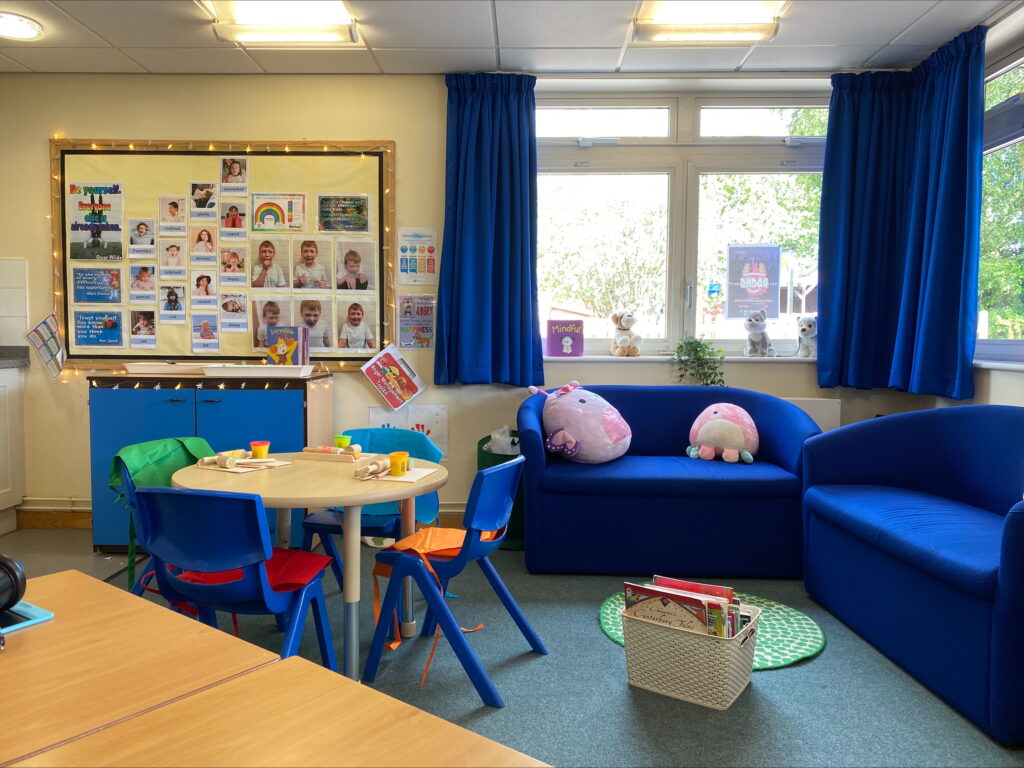
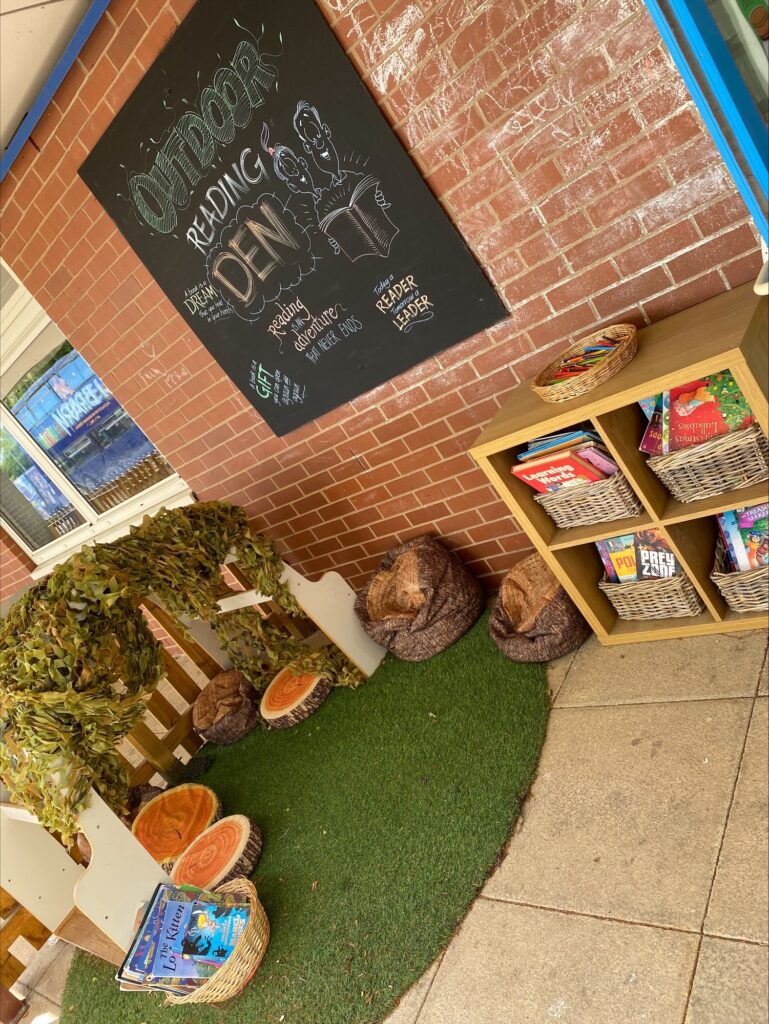
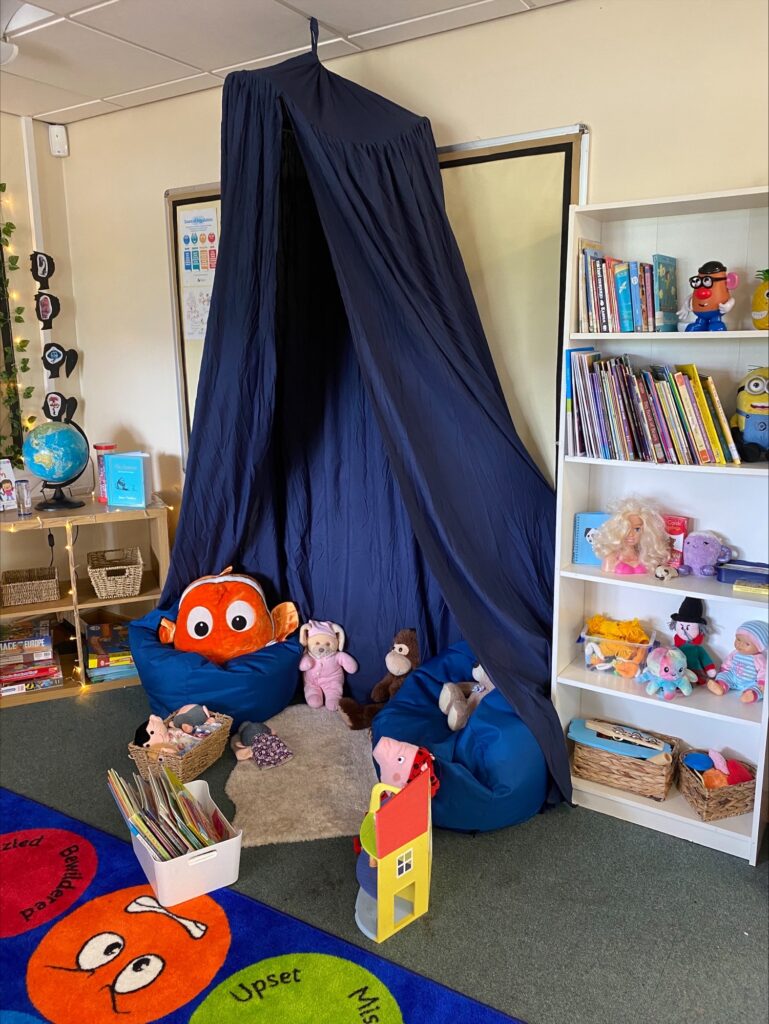
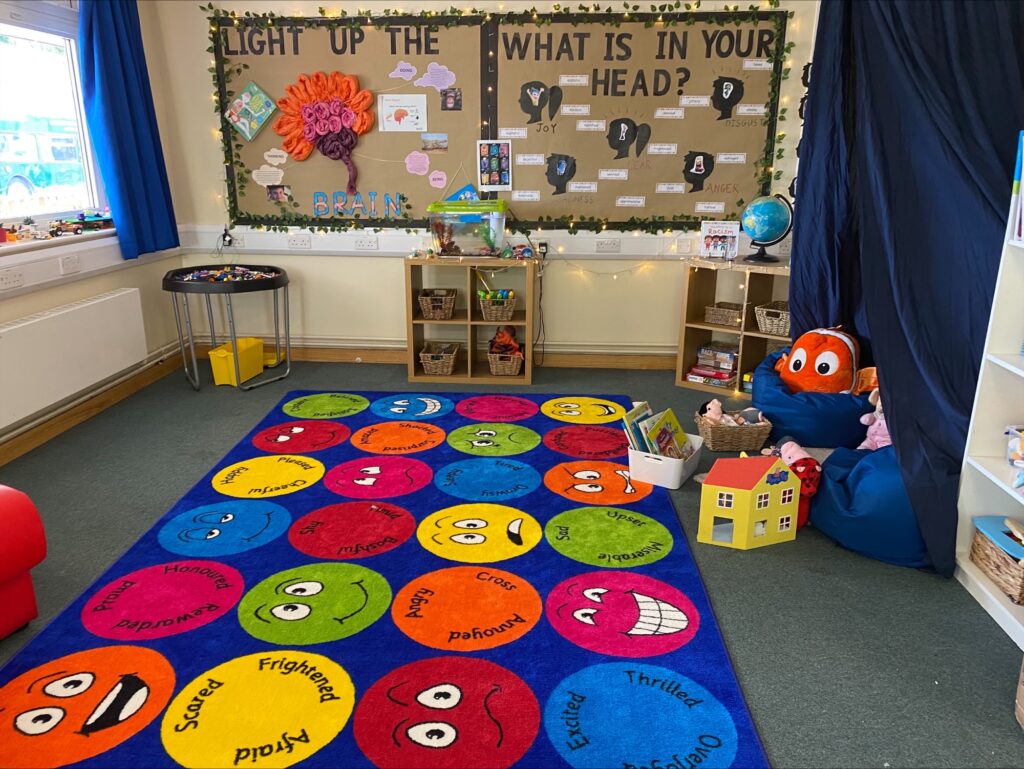
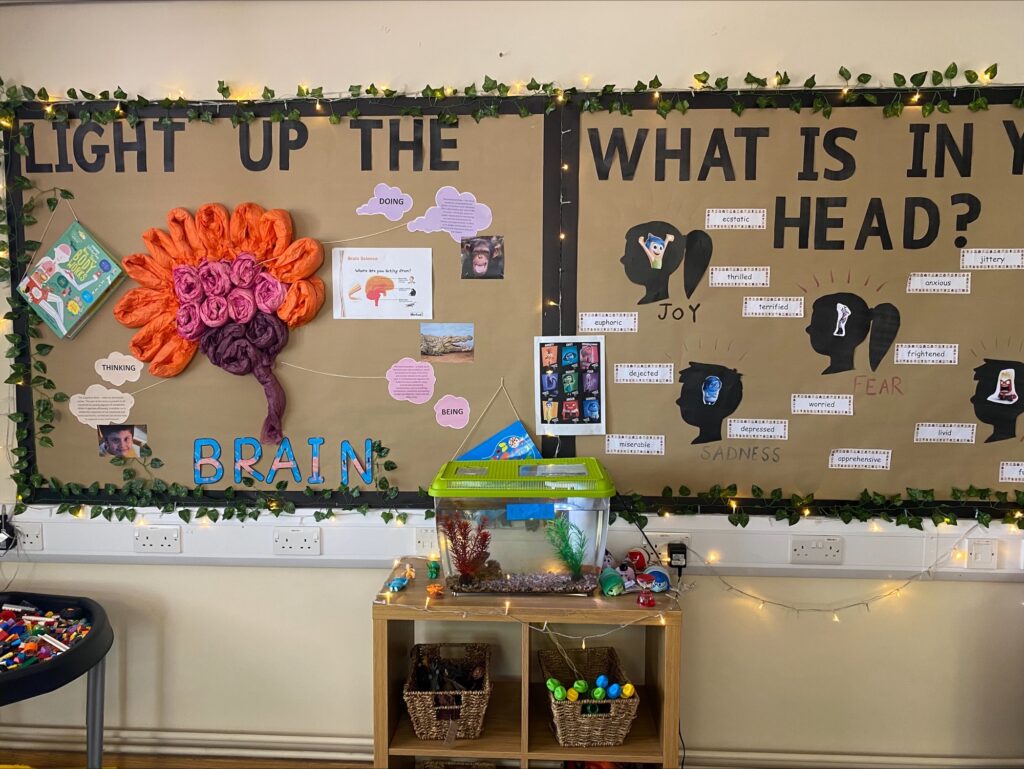
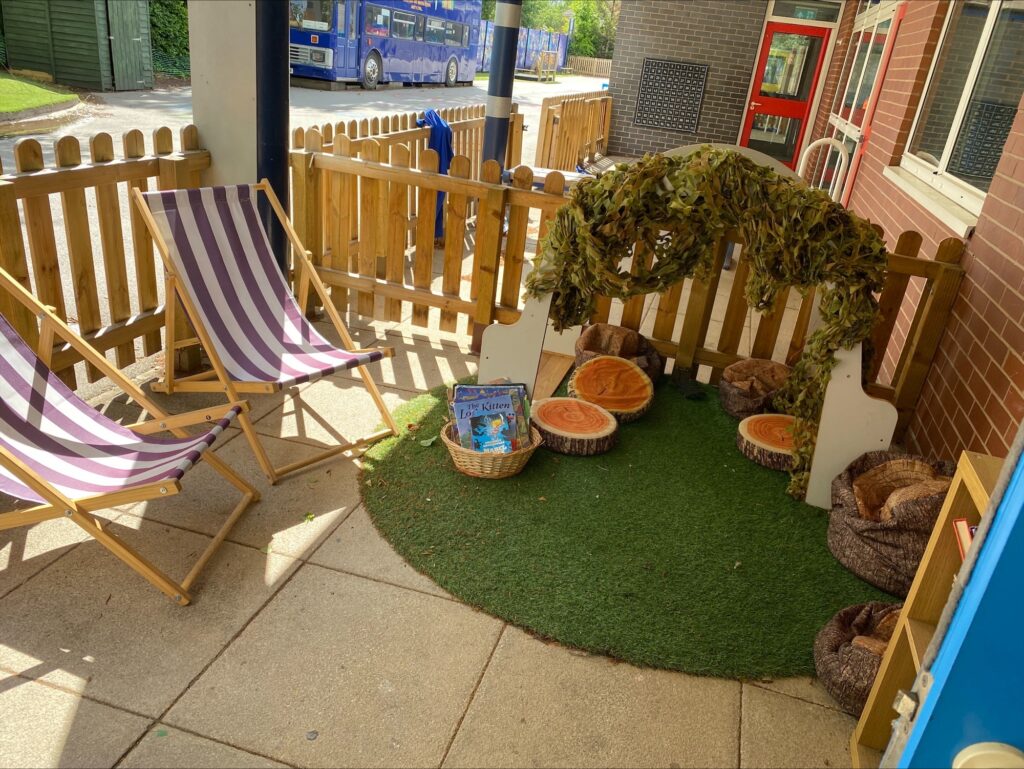
Each week, our Mental Health Ambassadors run our lunchtime Mental Health Club.
Mental Health Ambassador Letter for Y3 – Y6
Flu immunisation information
Asthma Friendly School 2024

We are pleased to announce we have been accredited the Asthma Friendly School award. We are working hard to improve asthma awareness and management in school.
Mental Health & Wellbeing Newsletters 2025/2026
Child Safety Week 2025 – please visit Free educational resources | Child Accident Prevention Trust for further advice about keeping children safe or take a look at the below booklet.
HAF – NCC Holiday Clubs
Children’s Mental Health Week 2026
The theme is ‘This is My Place’ encouraging peers, families, schools and communities to create an environment that gives children and young people a sense of belonging.
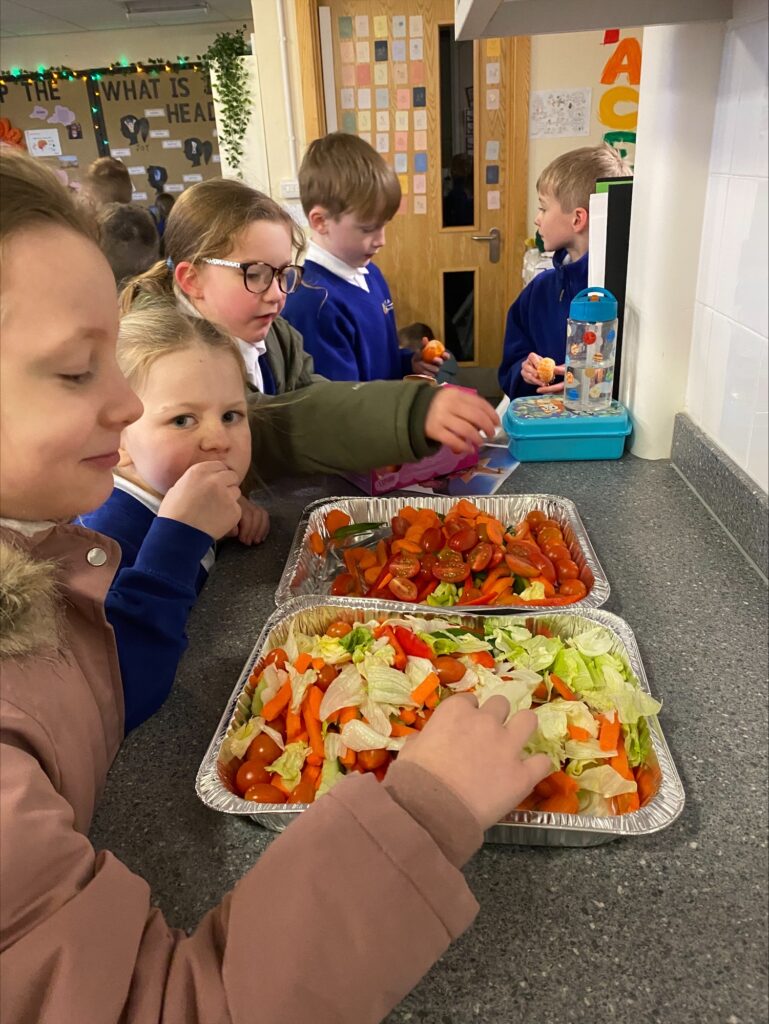
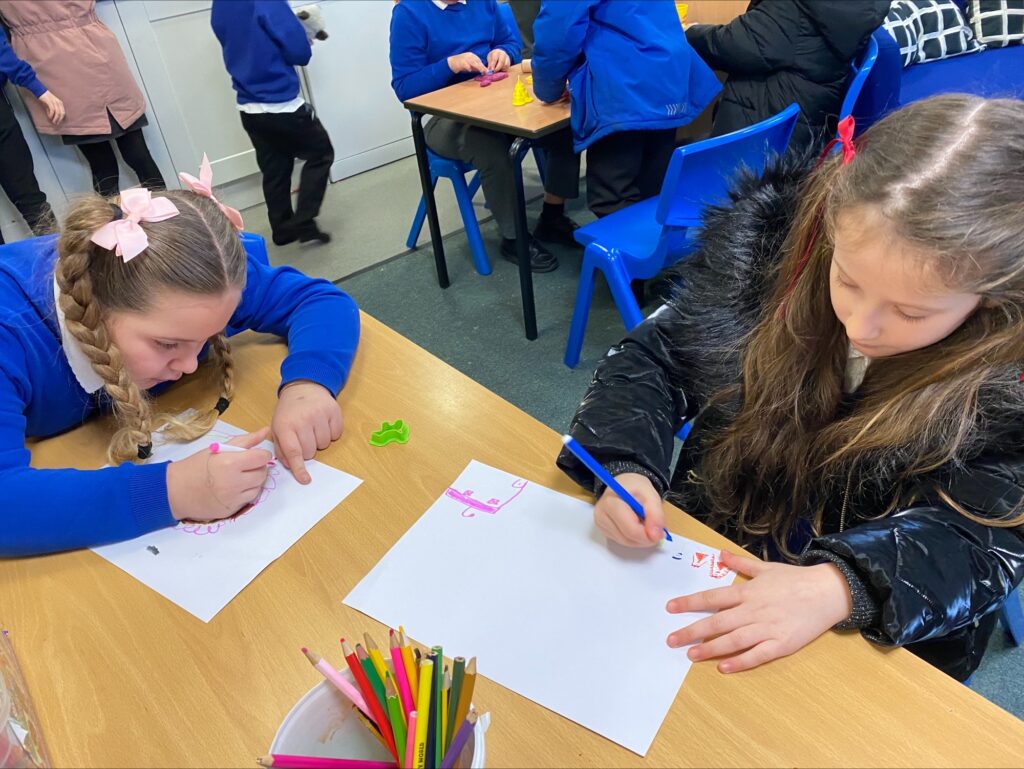
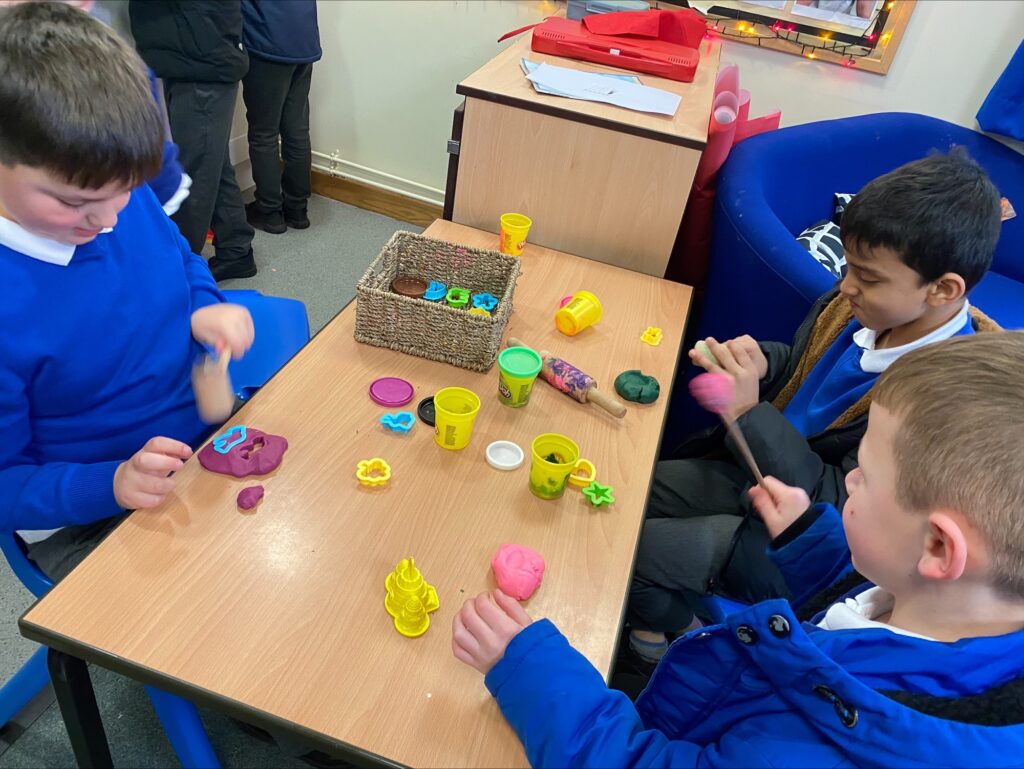
Mental Health Ambassadors
We have identified several children that could be great candidates for a new role in school – Mental Health Ambassador. The children below have been awarded with their certificates and badges and will actively support staff members with the wellbeing of other pupils, in a range nurturing activities throughout the school day.
Mental Health Ambassadors
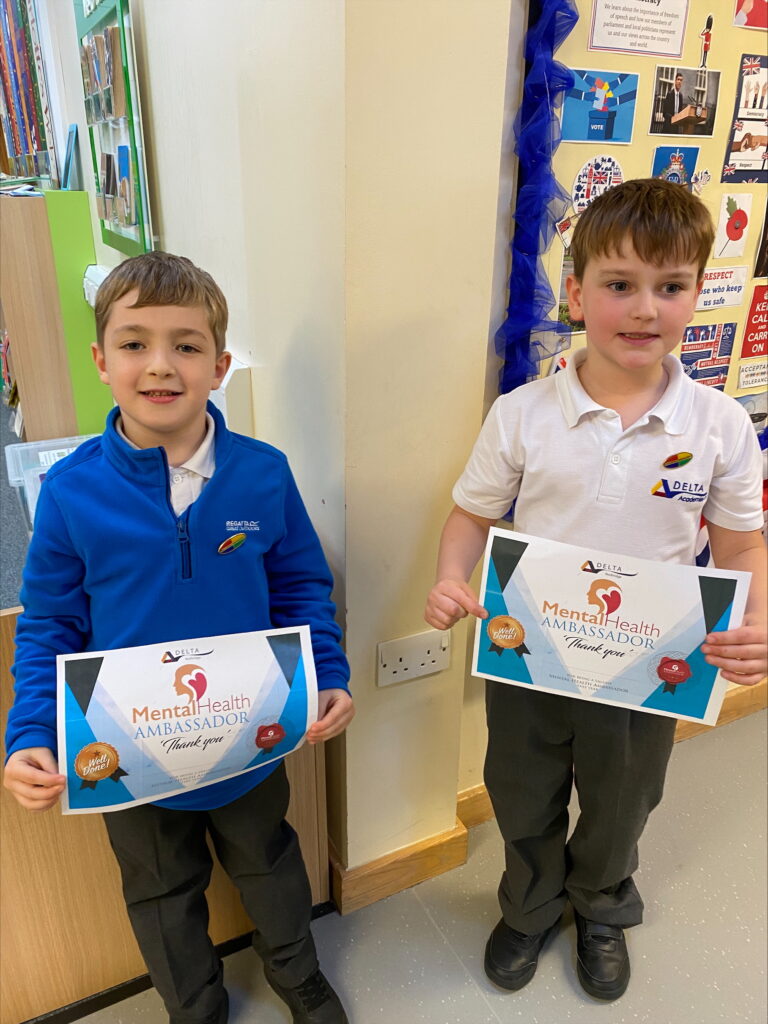
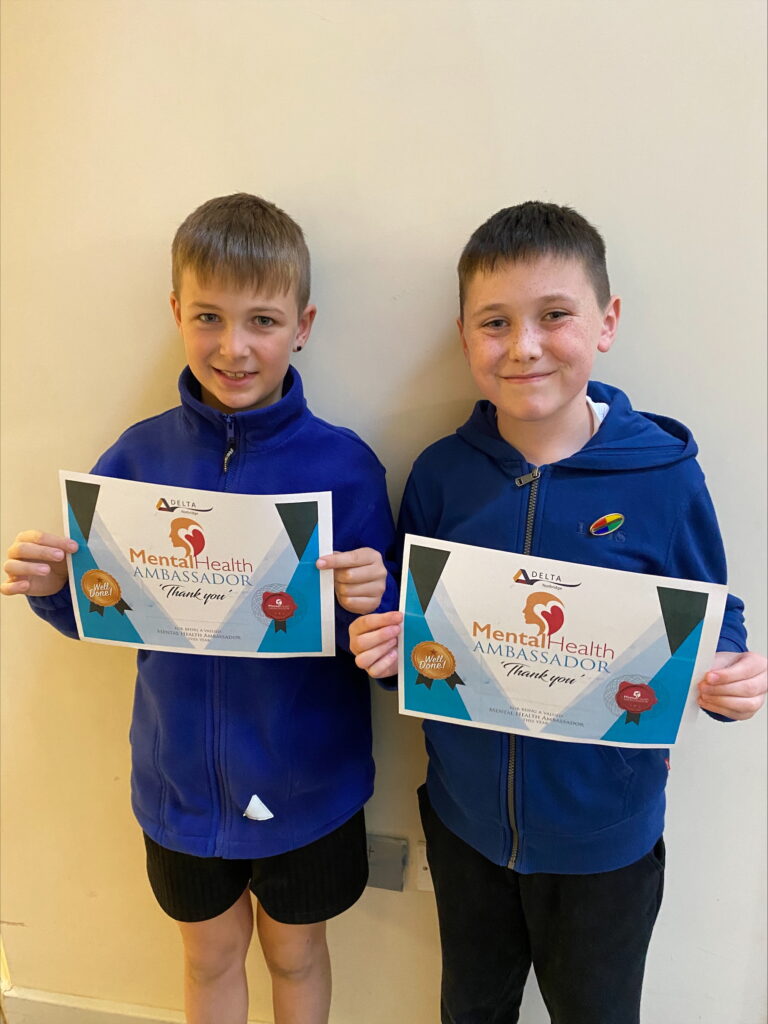
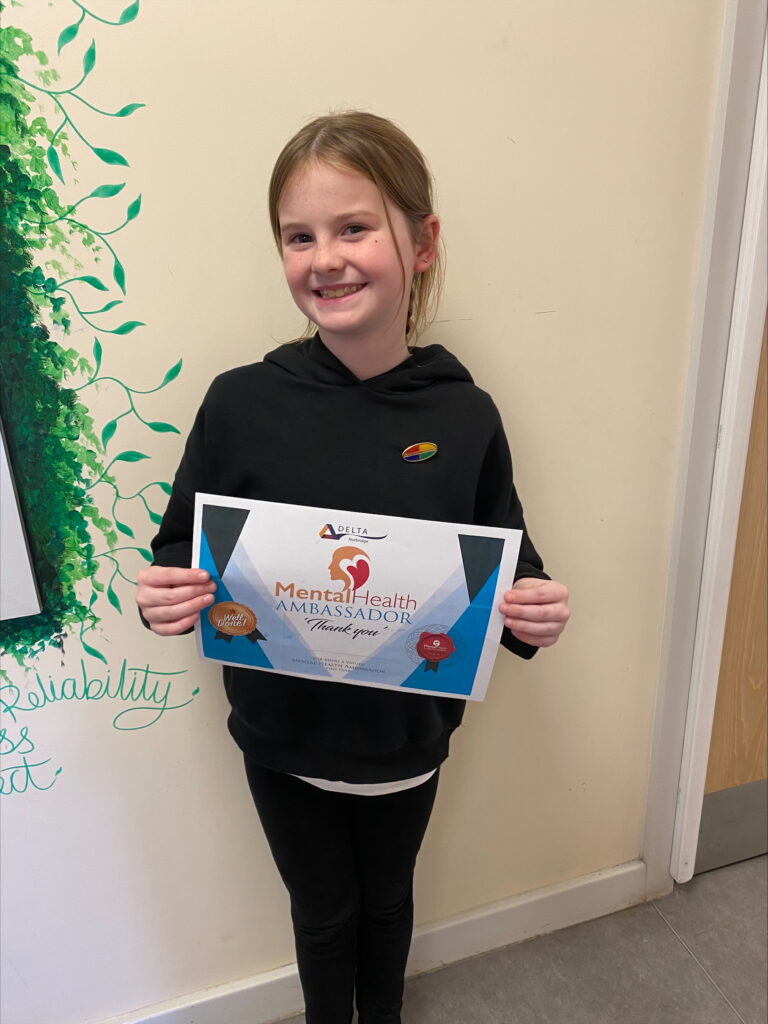
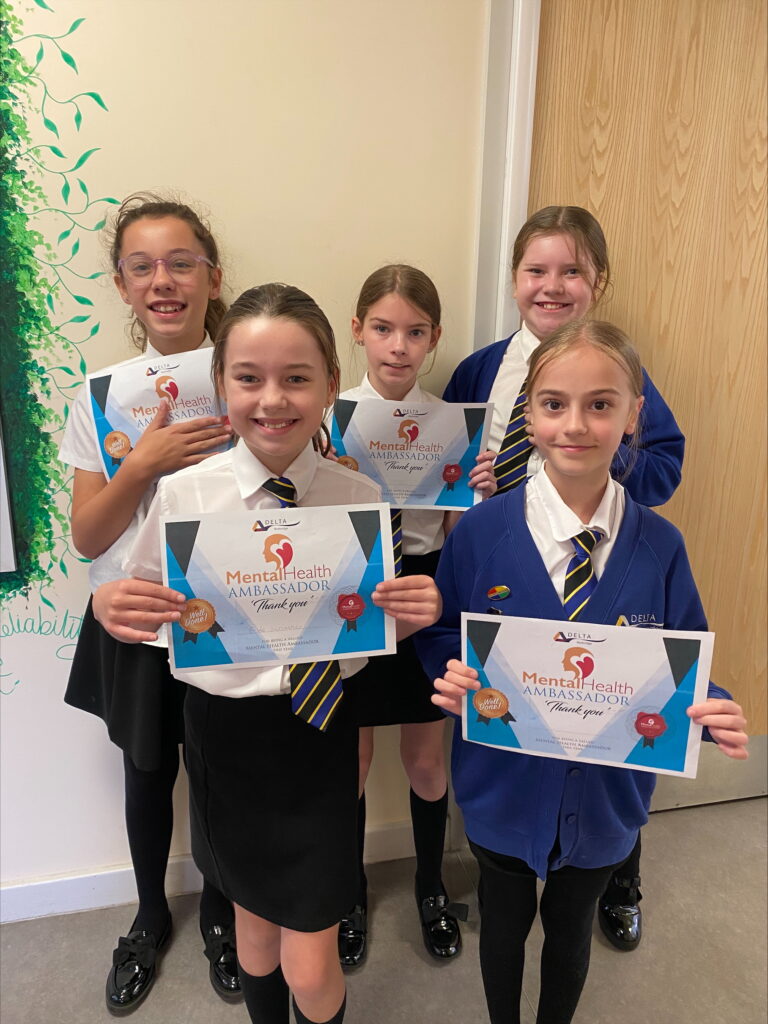
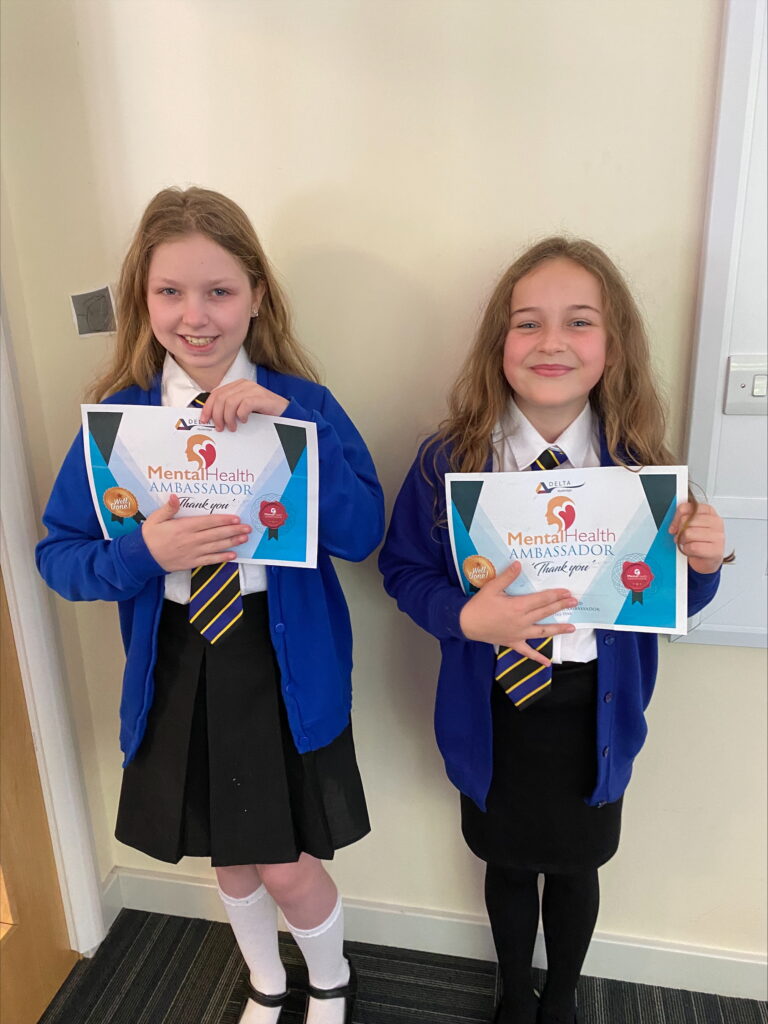
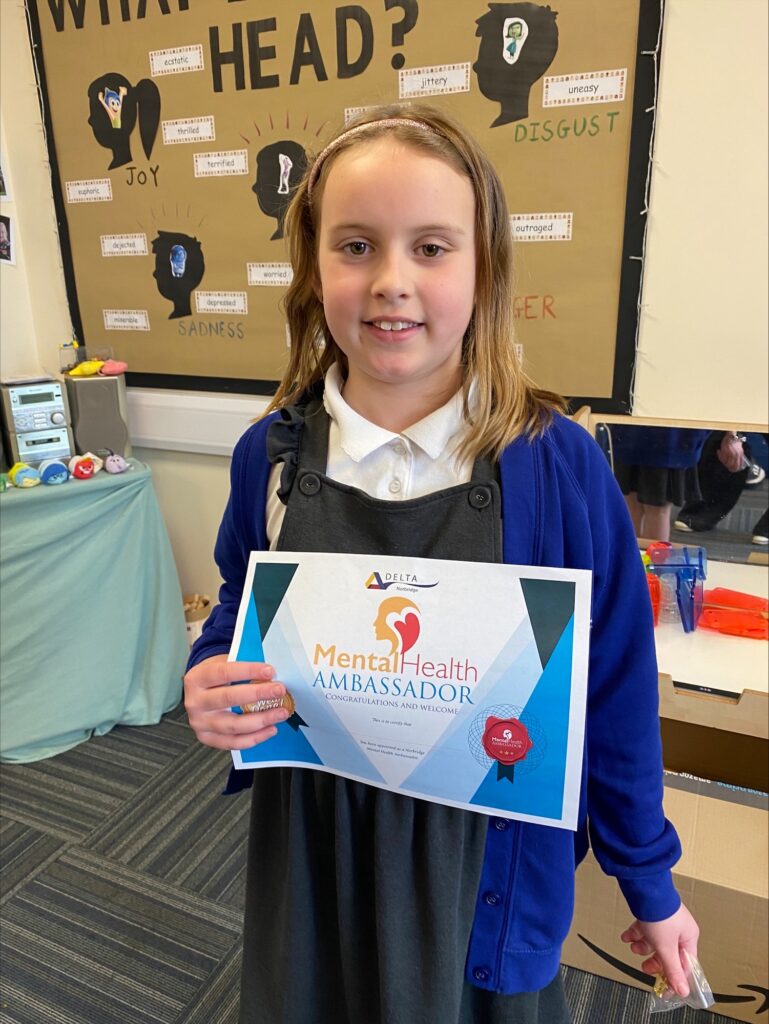
ELSA Support
An ELSA in a school is an Emotional Literacy Support Assistant. There is a recognised ELSA training course aimed specifically at training skilled staff in school. Examples of things covered on the course are social skills, emotions, bereavement, social stories and therapeutic stories, anger management, self-esteem, counselling skills such as solution focus and friendship.
Norbridge Self Care Challenge – look after your mental health by taking part in one of our daily challenges!
Day 1 – Write a diary of your day
- What did you do today?
- What do you appreciate about today?
- What made you smile today?
- Did anyone make you laugh today?
Day 2 – Meditate for 5 minutes or mindful minutes
- Use YouTube to find guided meditations – search guided meditation for children or download Headspace
- You could also try deep breathing exercises – these can be found on YouTube!
- Breathe in through you nose for 4 seconds
- Hold you breath for 4 seconds
- Breathe out through your mouth for 6 seconds.
Day 3 – Go for a 30 minute walk
When outside think about:
- What can you hear?
- What can you smell?
- What can you see?
- Did you notice anything that you haven’t noticed before?
Day 4 – YOGA
Use YouTube to find some child friendly yoga pages. Cosmic Kids Yoga is brilliant for children.
Day 5 – Call a friend
- Call a friend to just see if they’re ok, have a chat and make each other feel good.
Day 6 – Read a book alone
- Take some quiet reading time for yourself today, I recommend around 15 minutes.
Day 7 – Mindfulness colouring
- Print off some mindfulness colouring sheets to colour in – I like to do this quietly or with some music.
- Draw your own mindfulness colouring sheet.
Childline
Support for Families
Resolving Parent Conflict
A new resource has been developed aimed at helping parents resolve their everyday disagreements in a positive manner, mindful of the impact that an unhappy home atmosphere has on their children.
Please click on the link below to watch a short informative video created by Notts County Council titled ‘Relationships Really Matter; Resolving Parental Conflict.
Sleep Support
Toileting Advice
Behaviour
Bereavement & Loss
Loss could be losing a family member or the loss of a friendship group because of moving schools. Grieving is hard for everyone and it is usually a natural period of significant upset that changes over time.
It is common to experience the following things when you are grieving.
- Feeling numb or being in denial
- Being anxious and worried
- Feeling helpless and hopeless
- Anger
- Sadness and tearfulness
Some people talk about stages of grief (which is when you experience these things at different times), but people react differently to loss. Grief is all about adjusting to life without the person or thing that you have lost. People’s reaction to loss is often expressed in a change of behaviour, especially if they are younger. A person’s age has a big impact on their understanding of death, grief and loss:
- Infants have no real concept of death but they will react to some loss e.g. separation from parents can be interpreted as permanent loss of that parent.
- Toddlers have no real concept of death being a permanent condition, but they will easily pick up on anxiety and distress from the emotions of those around them.
- Preschool children begin to learn that death is something feared by adults. This age group may view death as temporary or reversible, like it often is in cartoons.
- School-age children are developing a more realistic understanding of death. Death may be represented as an angel, skeleton, or ghost. This age group is beginning to understand death as permanent, universal, and inevitable. They may be very curious about the process.
See below links to several charities which could offer support and guidance during a difficult time. In addition to the website links we have uploaded a variety of useful stories to help and support children who are dealing with the loss of a loved one.
Headlice Advice
Water Safety Advice